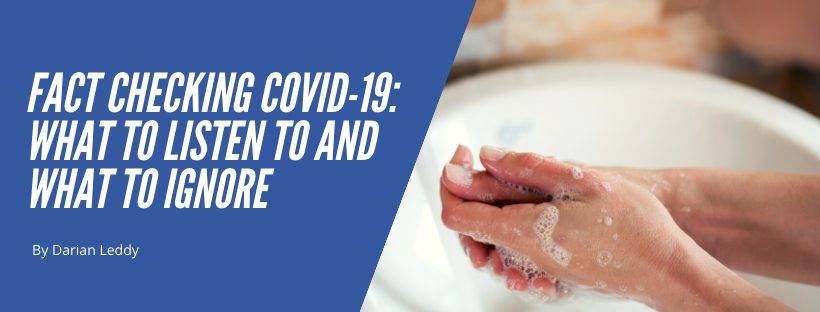There has been a flood of information about COVID-19 on social media in recent weeks, some of it reliable, some of it not. Below, we fact checked some commonly posted items about the virus.
Young and healthy people are not at risk of contracting COVID-19.
Ignore. While older people and those with chronic health conditions are at a higher risk of developing serious COVID-19 illness, anybody can become sick and spread it to those around them. Take precaution and keep your distance from others, especially those in vulnerable communities.
You should avoid gathering in large groups of people for the next few months.
Listen. The virus is spread respiratory droplets from a cough or sneeze of an infected person. This means coming within 6 feet of infected people, or touching surfaces that have not been sanitized puts you at risk. To protect yourself and others, stay at home. Health officials say to “assume you are contagious, even if you feel fine.”
Hand dryers can effectively kill the virus.
Ignore. A video on Facebook claims that high temperatures such as those used in a hand dryer can kill the virus. The virus can survive in all extreme temperatures. Instead wash your hands often with soap and water and hand dry them with a towel.
Symptoms can occur up to two weeks after you contracted the disease.
Listen. Once someone contracts the disease, symptoms can appear between 2-14 days after exposure. These symptoms include fever, cough, and shortness of breath. If you are experiencing any of these symptoms, or if you’re not, but believe you could have contracted the disease, call your doctor for medical advice.
If you drink water frequently, you can stop yourself from contracting COVID-19.
Ignore. This facebook post says if you keep your mouth wet by drinking water every 15 minutes, the virus will be flushed into your stomach and killed. While staying hydrated is important for every-day health, there is no evidence that says it prevents you from getting the disease.
Traveling in crowded areas such as airports may increase the likelihood of getting sick.
Listen. Airports are full of people who are coming from places all over the world that may be affected by the outbreak. Waiting in tightly crammed lines and compact planes gives you a higher chance of coming into contact with an infected person and contracting COVID-19. Play it safe and only fly if it’s an emergency.
At-home thermometers can detect if you are infected with the disease.
Ignore. While one of the main symptoms is a high fever, thermometers cannot tell the difference between COVID-19 and a regular high fever. If you have a fever, isolate yourself from others, and monitor if you develop any other symptoms such as a dry cough. The only sure way to tell if you have contracted the virus is to call your doctor.
As of right now, there is no vaccine for COVID-19.
Listen. Medical professionals have yet to find a vaccine to prevent the spread of COVID-19. Because of this, it’s important that we continue to follow the CDC’s guidelines on how we can protect ourselves. Wash your hands, avoid close contact with others, and stay home if you’re sick.

